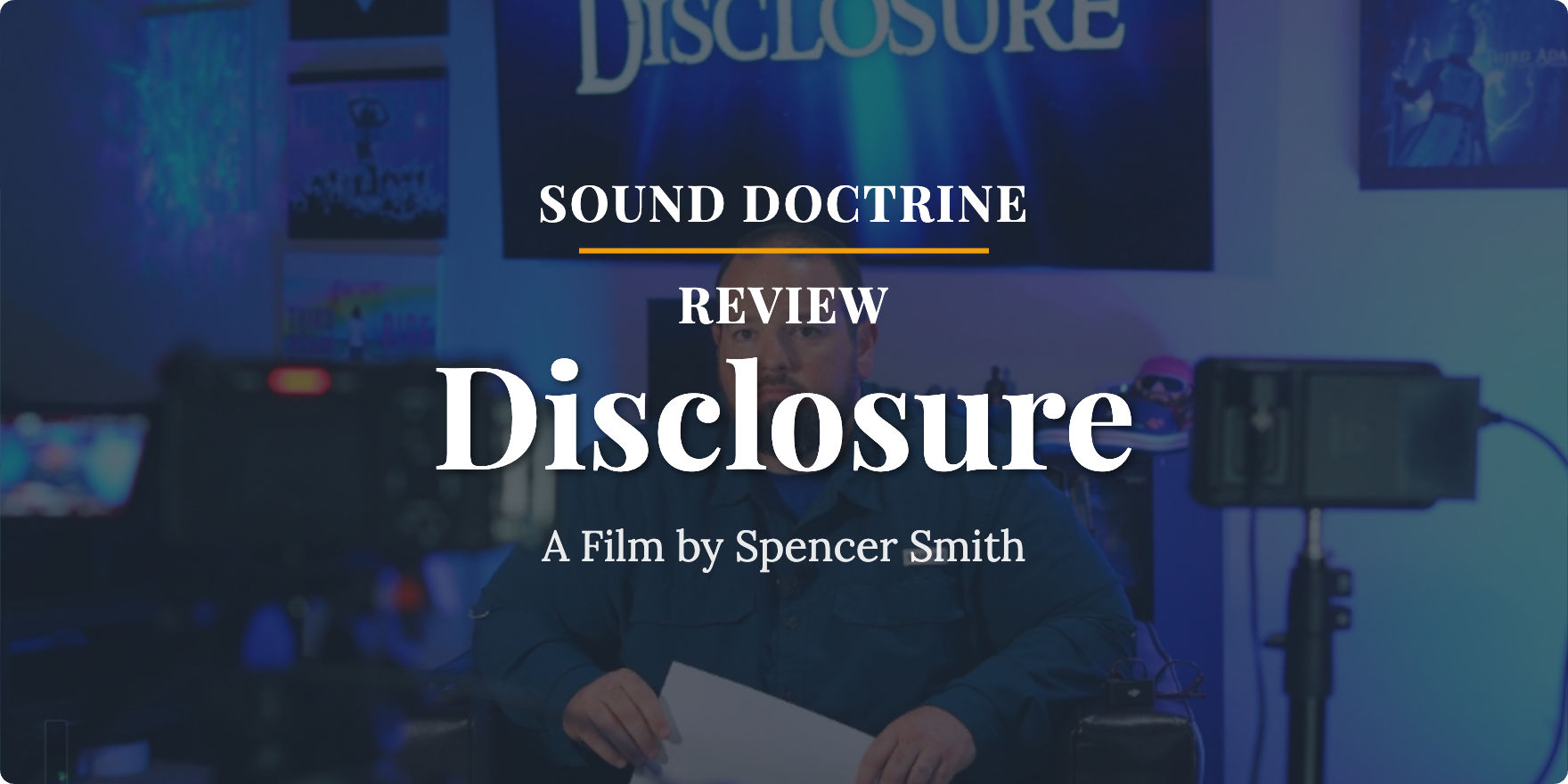
A Review of "Disclosure"
An Unflinching Look in the Mirror: A Doctrinal Review of Spencer Smith's "Disclosure"
Going into Spencer Smith’s documentary, "Disclosure," I held a certain perception of him as a staunch defender of the Independent Fundamental Baptist (IFB) movement, a movement I have often associated with a rigid and sometimes harmful legalism. I expected an apology, a defense, or perhaps a minimization of the problems.
What I watched was something else entirely. "Disclosure" is not an apology; it is an indictment. It is not a defense of a system but a biblically-grounded exposé of a toxic philosophy that has taken root in certain corners of the IFB world. The film argues powerfully that the horrific abuse scandals that have made headlines are not isolated incidents, but the inevitable and rotten fruit of a tree that is diseased at its very root. The film’s biblical analysis of this system is its greatest strength.
The Root of the Rot: A Flawed Philosophy
The documentary’s central thesis is that the scandals begin not with a crime, but with a compromise. Smith outlines a devastating chain reaction that starts when a ministry’s goal shifts from faithfulness to pragmatism: choosing what "works" to produce numerical growth over what is biblically right. He argues this leads to a cheapened, repentance-free gospel to boost professions of faith, which in turn creates a church full of unconverted members. To control this "machine," the pastor must then be elevated to an infallible, unaccountable status, the "Man of God Syndrome."
This critique is profoundly biblical. Scripture warns that the measure of a steward is not success, but faithfulness (1 Corinthians 4:2). The cult of personality and the demand for unquestioning obedience violate the New Testament model of a humble, servant-shepherd who is not a "lord over God's heritage" (1 Peter 5:3).
A Necessary Voice, Albeit a Cautious One
While the film's analysis of the system is biblically sound and incisive, it is not without limitations. Leading up to its release, there was an anticipation that "Disclosure" would "call out" contemporary figures perpetuating this toxic philosophy. However, the only pastors called out by name, Jack Hiles and Jim Vineyard, are long deceased and have, for years, been considered problematic figures even among many in the newer IFB generations. This focus on the past avoids a direct confrontation with the living inheritors of that legacy. Furthermore, for those who have followed this topic, the documentary does not cover significant new ground. The issues of spiritual abuse and the "cover-up culture" have been explored in great detail by numerous documentarians and YouTubers who have departed from the movement.
However, to judge the film solely by these standards is to misread its intended audience and its unique purpose.
I realize that the majority of Spencer Smith's audience are current IFB members, many of whom have been conditioned to reject any criticism from "outsiders." For this specific audience, I do feel the documentary is effective enough to make an impact. Because it comes from an insider and focuses on the foundational flaws of the system rather than attacking a long list of living figures, it can bypass the initial defense mechanisms that cause many to shut down. It provides a "safe" entry point for a loyal IFB member to begin questioning the unbiblical philosophies they've been taught without feeling like they are betraying their entire heritage.
In this light, the film's caution can be seen as a strategic choice. Its true significance lies not in revealing new scandals, but in its potential to provoke thought and initiate reform from within the movement, a feat that external critiques, however thorough, often fail to accomplish. It is a courageous act of self-policing from a man still trying to salvage what is good within his own camp.
Conclusion: A Call to Biblical Reformation
"Disclosure" is a difficult but necessary film. While it may not be the comprehensive exposé some were hoping for, its value is undeniable. It serves as a doctrinal rebuke to a pragmatic, man-centered system and validates the experiences of countless individuals who have been harmed.
It powerfully dismantles the very structures of legalism: the infallible pastor and the loyalty culture that places tradition above Scripture. It is a call for repentance and a return to a ministry that is a flock, not a factory; led by shepherds, not CEOs; and where the "little ones" (Luke 17:2) are protected, not sacrificed. For that, it is a commendable and important work.